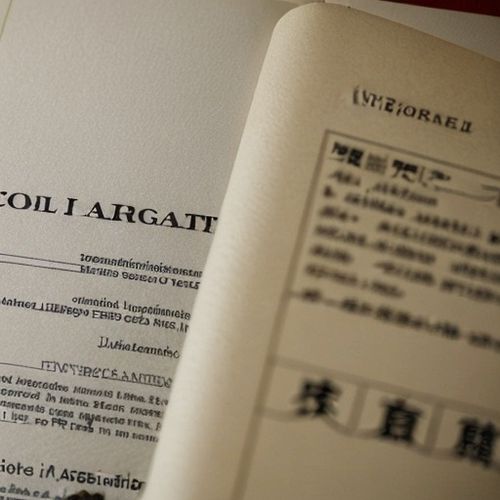Italy has long been known for its rich cultural heritage, passionate people, and strong family values. However, in recent years, the country has also gained attention for its unique approach to divorce legislation. The introduction of a mandatory "cooling-off" period for couples seeking to end their marriages has sparked debates among legal experts, sociologists, and the general public alike. This period, often referred to as the "Italian divorce waiting period," represents a significant shift in how the state intervenes in marital dissolution.
The concept of a divorce cooling-off period isn't entirely new to family law, but Italy's implementation carries distinct characteristics shaped by the country's social and religious context. Unlike some nations where divorce can be obtained relatively quickly, Italian law requires couples to undergo a prolonged period of reflection before their marriage can be legally dissolved. This waiting period applies even in cases where both parties agree on the separation, making Italy's approach particularly noteworthy in comparative family law studies.
Historical Context and Legislative Evolution
To understand Italy's current divorce laws, one must look back at the country's complex relationship with marital dissolution. For centuries, Italy didn't recognize divorce at all due to the strong influence of the Catholic Church. It wasn't until 1970 that divorce became legal, following a hard-fought battle between progressive reformers and conservative forces. Even then, the initial legislation included waiting periods and other restrictions meant to discourage marital breakdowns.
The modern iteration of Italy's divorce waiting period emerged from reforms in 2015, when lawmakers extended the mandatory separation period before divorce from three years to either six months (for uncontested cases) or one year (for contested divorces). This change came as part of broader family law reforms aimed at modernizing Italy's legal framework while still preserving what many see as important safeguards for marital stability.
Implementation and Practical Effects
In practice, the Italian cooling-off period requires couples to live separately for the mandated duration before they can file for divorce. During this time, they're expected to carefully consider their decision and explore possible reconciliation. The law provides some flexibility - the separation period can be shortened under certain circumstances, such as cases involving domestic violence or when one spouse has been convicted of a serious crime against the other or their children.
Family lawyers in Italy report mixed experiences with the waiting period. Some clients find the extended time helpful for making thoughtful decisions about their futures, particularly when children are involved. Others view it as an unnecessary bureaucratic hurdle that prolongs emotional distress. The financial implications can also be significant, as maintaining separate households during the waiting period creates additional economic burdens for many couples.
Cultural and Social Dimensions
Italy's approach to divorce reflects deeper cultural attitudes about marriage and family. In a country where family ties remain exceptionally strong across generations, the law appears designed to reinforce the permanence of marital bonds. Sociologists note that Italian society still carries residual influences from its Catholic past, where marriage was considered a sacred, lifelong commitment rather than a temporary arrangement.
This cultural backdrop helps explain why the waiting period has faced relatively little public opposition compared to similar measures in other Western nations. While younger generations and urban populations tend to view the requirement more critically, many Italians - particularly in smaller towns and rural areas - see value in institutional mechanisms that encourage couples to work through marital difficulties rather than opt for quick divorces.
Comparative Perspectives
When placed in international context, Italy's approach stands in contrast to divorce procedures in many other developed nations. Several U.S. states allow "uncontested" divorces to be finalized in weeks or months, while some Scandinavian countries have streamlined the process even further. Even within Europe, Italy's mandatory waiting period is among the longest, though not without parallels in certain other predominantly Catholic countries.
Legal scholars debate whether Italy's model could serve as an example for other nations grappling with high divorce rates. Proponents argue that mandatory reflection periods might reduce impulsive divorces and give couples time to consider alternatives like mediation or counseling. Critics counter that such requirements infringe on personal freedom and can trap individuals in unhappy or even dangerous marriages against their will.
Psychological and Emotional Considerations
The psychological impact of divorce waiting periods has become a growing area of research. Some studies suggest that forced delays in marital dissolution can help reduce regret and promote more amicable separations when divorce does occur. The theory holds that time allows emotions to settle, enabling more rational decision-making about asset division, child custody, and other critical matters.
However, mental health professionals caution that extended waiting periods aren't universally beneficial. For couples in high-conflict marriages or situations involving abuse, the requirement to remain legally tied for months can exacerbate stress and trauma. Therapists report cases where the Italian waiting period has intensified rather than alleviated marital discord, particularly when one spouse uses the time to manipulate or pressure the other.
Economic and Legal Complexities
The financial aspects of Italy's divorce waiting period create additional layers of complexity. During the mandatory separation, couples must navigate temporary arrangements regarding shared assets, housing, and financial support. These interim solutions often require legal formalization, adding to the overall cost and bureaucracy of the divorce process.
For international couples or those with assets in multiple countries, Italy's waiting period can create jurisdictional challenges. The requirement to maintain legal ties for months after separation may conflict with divorce proceedings or financial arrangements in other nations, potentially complicating matters like tax filings or business dealings.
Future Developments and Potential Reforms
As Italian society continues to evolve, so too might its approach to divorce legislation. Some lawmakers have proposed making the waiting period more flexible, perhaps by giving judges greater discretion to waive or shorten it in appropriate cases. Others advocate for more support services during the cooling-off period, such as state-funded counseling or mediation programs.
Meanwhile, demographic shifts - including Italy's declining marriage rates and increasing numbers of cohabiting couples - may eventually force a broader reconsideration of family law priorities. As alternative family structures become more common, the traditional emphasis on preserving marital bonds through waiting periods could face new challenges and criticisms.
The Italian divorce waiting period represents more than just a legal technicality; it embodies a particular vision of marriage, family, and the state's role in personal relationships. Whether this approach serves as a model for other nations or becomes an artifact of a particular cultural moment remains to be seen. What's certain is that as family dynamics continue changing worldwide, the conversation about how best to structure divorce laws - with or without cooling-off periods - will remain an important one for years to come.

By /Jun 17, 2025

By /Jun 17, 2025

By /Jun 17, 2025

By /Jun 17, 2025

By /Jun 17, 2025

By /Jun 17, 2025

By /Jun 17, 2025

By /Jun 17, 2025

By Sophia Lewis/Apr 19, 2025

By Elizabeth Taylor/Apr 19, 2025

By James Moore/Apr 19, 2025

By Rebecca Stewart/Apr 19, 2025

By Ryan Martin/Apr 19, 2025

By James Moore/Apr 19, 2025

By Sarah Davis/Apr 19, 2025

By George Bailey/Apr 19, 2025

By James Moore/Apr 19, 2025

By Amanda Phillips/Apr 19, 2025